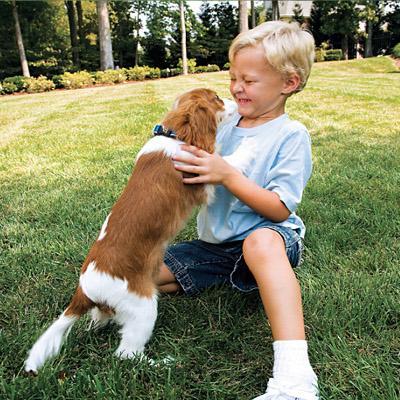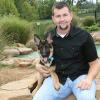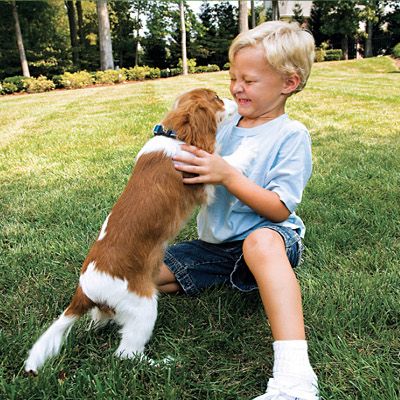 When is a good age to start training my dog? This is one of the most common questions I get. There are many myths and ideas about the best time to start. The simple answer is, the younger the better! As soon as you get your puppy, you can and should start training.
When is a good age to start training my dog? This is one of the most common questions I get. There are many myths and ideas about the best time to start. The simple answer is, the younger the better! As soon as you get your puppy, you can and should start training.
Benefits of Raising Puppies
Many people get their dogs as very young puppies. When I refer to the "puppy stage," I mean birth to 6 months old. But dogs are still puppies until a year old or later. Most of the developmental stages that shape your dog end at 6 months. That's why the younger you start the better.
The downside to a puppy is that you will have to go through some of the frustrating puppy problems. But in my opinion, getting a puppy has many more pros than cons. For instance, you can build a strong bond when they are young. And you can shape them to be the dog you want. The puppy stage is the most important time for training.
Where to Start with Puppy Training
During this phase, the majority of your focus should be on socialization. Exposing your puppy to as many people, dogs, places, and situations as possible is a great way to start. Just ensure that every interaction your puppy has is positive and rewarding. Make sure you do not force your puppy into any situation they are uncomfortable with. But you can use food to reward them for approaching on their own.
You can also have strangers say hi to your puppy or give them treats. This will build positive experiences and your puppy will grow up to like strangers and not be afraid of them. You should not use food to help around other dogs though. The other dog may be food aggressive and it can turn bad quickly.
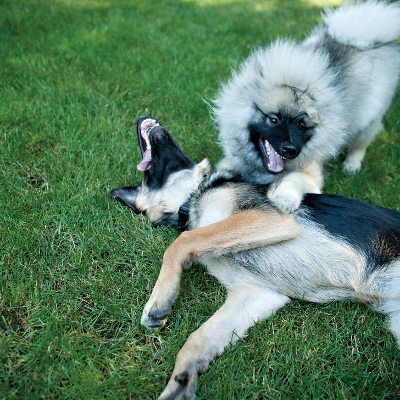 When you introduce your puppy to other dogs you should try to start with other puppies. This helps them feel less intimidated. If this is not possible, it's ok to socialize your puppy with adult dogs. Many adult dogs are very playful and very patient with puppies. Just make sure you find an adult dog who fits this description.
When you introduce your puppy to other dogs you should try to start with other puppies. This helps them feel less intimidated. If this is not possible, it's ok to socialize your puppy with adult dogs. Many adult dogs are very playful and very patient with puppies. Just make sure you find an adult dog who fits this description.
Keep in mind that throughout the course of play, an adult dog may give your puppy a mild correction. These can seem strong or scary but are also necessary. The correction should not result in physical harm. And the adult dog should begin to play again at a more acceptable level. Remember, these mild corrections help teach your puppy what is acceptable play and not. But it's your responsibility to ensure the adult dog is not too rough.
Early Potty Training
The next thing to focus on during the early puppy stage is potty training. Now is the best time to communicate with your puppy the appropriate areas to go potty.
When potty training, it's important that you never punish your puppy for accidents in the house. This will only create an environment where the puppy will not go to the bathroom in front of you. And that is a problem that makes the process much longer and more difficult. Here is a brief checklist of things to do when potty training.
-
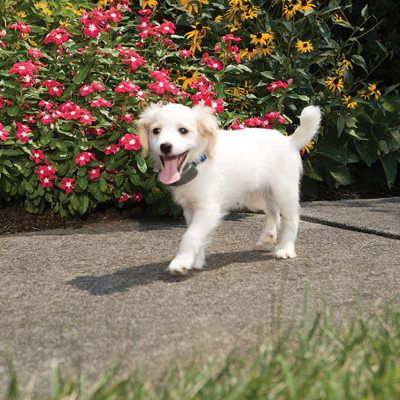 Bring your puppy outside to potty 10 minutes after eating or drinking.
Bring your puppy outside to potty 10 minutes after eating or drinking. - Any time your puppy wakes up from a nap or is let out of the crate, immediately bring him outside to potty.
- Reward your puppy with a food treat at the exact moment he potties outside.
- Give your puppy plenty of time outside because he might have to potty multiple times to get everything out.
- Use your crate if you cannot keep a close eye on your puppy to prevent the accidents he has inside.
- If an accident happens, take your puppy outside and then clean the mess with a good enzyme-based cleaner.
This is a basic outline for potty training. Once this is accomplished, you can move on to basic obedience.Stay tuned for ideas on basic and advanced obedience training. Until then, stay motivated and consistent. And remember to always make training time fun and exciting for you both.

